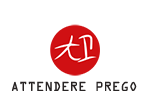Exploring Reality
Unveiling the Taoist Perspective and Practices
Defining reality is a complex endeavor since each individual perceives it in a personalized way. One could say that reality is “what appears to be”: what we consider real is what we collectively agree upon. When nine out of ten people affirm a fact, it undoubtedly becomes real in their minds.
The perception of reality, especially concerning the physical universe, is influenced by various factors. We see things with our eyes and process them through our minds, which operate based on the received education. Although we are in contact with reality through our senses, there is something elusive. The thirst for understanding and knowledge leads the Western mind to heavily rely on the intellect, while the Taoist understanding of reality originates from the heart. This is why there exists a distinct perspective on reality between Asia and the West. We should start from the premise that we know nothing about the purpose of this universe and pay attention to the voice of the heart to establish an intimate connection with it and the divine creator.
Often, we make statements that do not reflect our true “being.” When we use expressions such as “I am” followed by a noun or adjective, like “I am brilliant” or “I am sensational,” we are utilizing the logical mind that does not always align with reality. It is merely accustomed to translating specific sensations that we “believe” we have understood into definite words and classifications. Affirming to “be,” saying “I am,” as if we know who we are, already represents a high level of awareness. However, with such a statement, the significance of “if” is diminished because it seems taken for granted that we already know our true identity and defining characteristics (stressed, tired, beautiful, fed up, etc.). This sentence stems from a verbal communication system that often lacks correspondence with our innermost reality.
Through Qigong, Tai Chi, and Yiquan, one learns to transcend rational thinking, to see beyond the boundaries of the Tao. Contact with the collective unconscious and the invisible forces of the universe is established. The mind expands, and perceptions take unexpected paths.
The universe is contemplated through our eyes, which is why everyone and everything matters. We are part of a whole—a “whole” that remains united through the individual. We feel intimately connected to nature and sometimes seek simple or unconventional ways to nourish our connection with it. By aligning ourselves with a direction, we find peace as we move forward with open eyes toward the horizon. All of this is part of a dance—a dance with the universe.
According to Taoism, reality cannot be fully comprehended through human reason or intellect. The rational mind tends to categorize and separate things, but Taoism suggests that reality is an indivisible unity in which everything is interconnected. Instead of seeking to dominate and control reality, Taoism encourages harmonizing with it, accepting the flow of change, and embracing the natural spontaneity of things.
The Taoist practice, such as meditation and mindful observation of nature, aims to develop heightened sensitivity and awareness. Through this awareness, one can experience the unity of all things and gain a more comprehensive perspective.
In Taoism, the cultivation of higher awareness for serene living is often associated with a practice called Wu Wei, which literally means “action without action” or “action in non-action.” Here are some principles and practices that can help you develop this higher awareness:
- Acceptance of Reality: Acceptance is a key element in Taoism. Embrace reality as it is, without resistance or judgment. Understand that everything is constantly changing, and resistance to change brings suffering. Be open and flexible toward life’s experiences and circumstances.
- Living in the Present Moment: Focus on the present moment instead of dwelling on the past or projecting into the future. The present moment is the only time in which you can authentically experience life. Concentrate on your daily activities and be fully present in them, experiencing the natural flow of the moment.
- QiGong Practice: QiGong is a powerful tool for developing higher awareness. Practice QiGong to cultivate inner calmness, mindful attention, and non-judgmental acceptance. QiGong helps you reconnect with your deeper self and develop a broader perspective on life.
- Observation of Nature: Spend time outdoors, immersing yourself in nature and observing its cycles and spontaneity. Nature is a great teacher in Taoism, and observing it can help you better understand the principles of change and harmony. Take time to walk in nature, contemplate the landscape, and connect with the vital energy permeating everything.
- Non-Resistance: Practice not going against the natural flow of life. Avoid forcing situations or attempting to control everything that happens. Be attentive to the signs life presents and respond harmoniously and balancedly. Follow the path of least effort and work with the energy around you rather than against it.
- Cultivating Inner Wisdom: Seek to develop deep self-awareness and awareness of your reactions. Observe your thoughts, emotions, and desires without judgment. Cultivate inner wisdom through self-reflection, self-observation, and the practice of inner stillness. Learn to connect with your inner essence and act in harmony with it.
M. Davide De Santis
Remember: that higher awareness is an ongoing process of learning and growth. It is not about reaching a definitive state but rather embracing the flow of life and developing a more balanced and harmonious relationship with it. Experiment with these practices in your daily life and adapt your path based on your personal experiences and understanding of Taoism.

